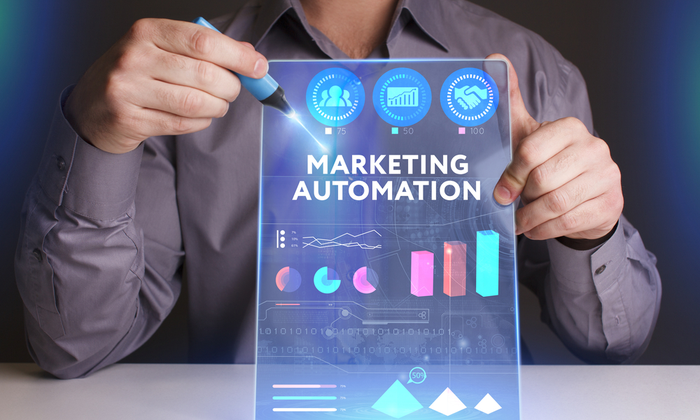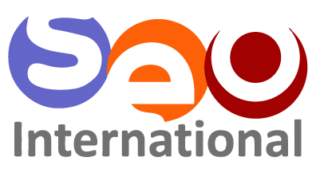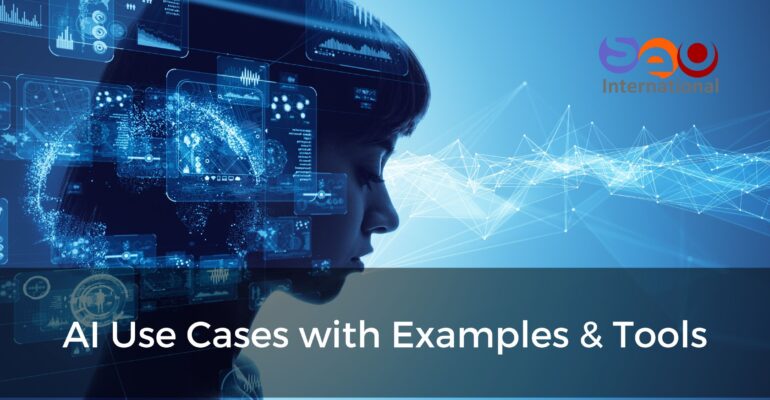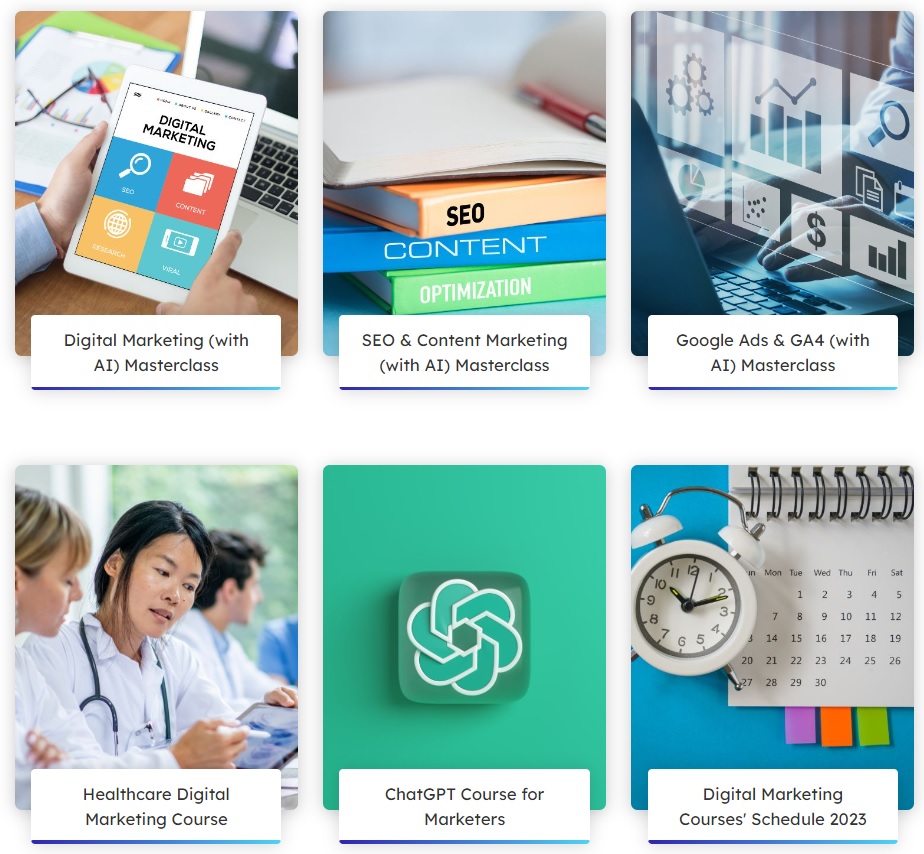AI Use Cases for Marketing with Examples & Tools
April 2, 2023 2023-04-02 0:44AI Use Cases for Marketing with Examples & Tools
AI is reshaping the marketing landscape, allowing businesses and marketers to drive more effective campaigns, optimize customer experiences and generate measurable ROI. From personalization to customer segmentation and sentiment analysis, AI is enabling more efficient automation of marketing tasks. In this article, we will explore some of the top AI use cases in marketing, from predictive analytics to customer lifetime value prediction, and how the right tools can help you better leverage AI for your business. Let’s dive in!
In an increasingly competitive environment, businesses need to leverage every tool at their disposal to stay ahead. AI is just such a tool, offering powerful capabilities for marketing teams to target their campaigns more, optimize processes and better understand customer needs. AI can help to drive better insights from customer data, personalize experiences and even generate content. In short, AI can be a major advantage for any business looking to stay ahead of the competition.
This article will look at 7 common AI use cases for marketing, from customer segmentation to predictive analytics and A/B testing. We’ll explore the importance of each use case for successful marketing campaigns, their examples and how AI can help improve efficiency and provide recommendations for the top tools to get started.
AI Use Case 1: Personalization
Personalization is a key element of any successful marketing campaign. Customers expect brands to provide personalized experiences that target their interests, needs and preferences. AI technology makes it easier than ever to automate personalized experiences, leveraging customer data and creating unique journeys for each user. AI-driven personalization can help marketers target their campaigns more easily and provide users with a more engaging experience.
Examples of AI-driven personalization include:
- Automated recommendations for products and services based on previous customer behaviour
- Targeted advertisements based on user interests
- Customized content tailored to individual user preferences
- AI-enhanced customer service experiences
- How AI Enhances Personalization
AI technology can help marketers better understand customer preferences and needs, predicting what content and products they are most likely to engage with. AI technology can also automate personalization tasks, such as sending emails and targeted advertisements, freeing up marketers to focus on other important tasks. Additionally, AI-driven insights can help marketers better segment their audiences and target their campaigns more effectively.
Examples
- Online Clothing Retailer (Zara): Zara uses AI to analyze customer data, sending personalized product recommendations via email and displaying tailored suggestions on their website, increasing conversions and satisfaction.
- Video Streaming Service (Netflix): Netflix’s AI algorithms generate personalized movie and TV show recommendations based on user viewing history, enhancing viewer engagement and satisfaction.
- E-commerce Marketplace (Amazon): Amazon employs AI to personalize the shopping experience by recommending products and promotions based on user preferences, improving customer satisfaction and driving revenue growth.
Recommended AI Tools for Personalization
- Dynamic Yield: Dynamic Yield is a powerful personalization platform that uses AI to deliver tailored experiences across various digital channels. It helps businesses increase customer engagement, conversion rates, and revenue by offering personalized product recommendations, content, and promotions.
- Adobe Target: Adobe Target is an AI-driven personalization engine that enables businesses to create and deliver customized experiences for their customers. By leveraging machine learning, Adobe Target helps optimize customer interactions, improve conversion rates, and increase customer loyalty.
- Optimizely: Optimizely is a leading experimentation and personalization platform that uses AI to deliver tailored experiences to customers. With Optimizely, marketers can test and optimize web content, product recommendations, and marketing campaigns to create more engaging and effective customer experiences.
Each of these tools harnesses the power of AI to provide personalized experiences for customers, ultimately helping businesses improve customer engagement, satisfaction, and revenue growth.
AI Use Case 2: Customer Segmentation
Customer segmentation is an important tool for marketers, as it allows them to divide their target audience into groups based on common characteristics. This helps marketers tailor their campaigns more effectively and deliver targeted content that resonates with each segment. AI technology can help automate the process of customer segmentation, making it easier for businesses to identify useful insights about their customers and target their campaigns more accurately.
Benefits of Customer Segmentation
Customer segmentation enables businesses to identify growth opportunities, better understand customer needs, and design targeted campaigns that drive conversions. AI-driven insights can help marketers gain a deeper understanding of their customers, allowing them to create more tailored experiences for each segment. Additionally, AI technology can help marketers identify micro-segments and target even smaller groups of customers with personalized messages.
Examples
- Social Network (Facebook): Facebook uses AI to segment its users into different groups based on factors such as age, location, and interests. This helps Facebook deliver more targeted content and advertisements that are relevant to each segment’s needs.
- Electronics Retailer (Best Buy): Best Buy uses AI for customer segmentation, enabling targeted marketing campaigns and promotions that increase conversions and satisfaction.
- Travel Booking Platform (Expedia): Expedia employs AI-powered segmentation tools to offer personalized travel deals and recommendations, increasing bookings and customer loyalty.
- Online Grocery Store (Instacart): Instacart utilizes AI-driven tools for customer segmentation, tailoring marketing messages and promotions to drive repeat purchases and customer retention.
AI Tools for Customer Segmentation
- Salesforce: Salesforce is a comprehensive customer relationship management (CRM) platform that uses AI to analyze customer data for segmentation. With its AI-powered tool, Einstein, Salesforce enables businesses to create targeted marketing campaigns and personalized experiences for different customer segments.
- HubSpot: HubSpot is an all-in-one inbound marketing, sales, and customer service platform that uses AI to enable customer segmentation. By analyzing customer behaviour, preferences, and demographics, HubSpot helps businesses tailor marketing efforts to resonate with specific customer groups, enhancing engagement and conversions.
- Segment: Segment is a customer data platform that collects, unifies, and routes customer data to various marketing and analytics tools. Using AI, Segment allows businesses to create sophisticated customer segments based on factors such as behaviour, preferences, and demographics, enabling personalized marketing campaigns and better customer understanding.
Each of these tools leverages AI to provide customer segmentation, helping businesses create more targeted and effective marketing strategies that lead to increased customer satisfaction and loyalty.
AI Use Case 3: Chatbots and Virtual Assistants
Chatbots and virtual assistants are becoming increasingly popular for customer engagement, as they allow businesses to provide automated responses to customer queries in real time. AI helps enhance the accuracy and relevance of these automated interactions, allowing customers to find answers quickly and efficiently.
Role of Chatbots in Customer Engagement
Chatbots can help improve customer service in many ways, such as providing 24/7 availability, handling multiple queries at once, and responding quickly to customer questions. AI-powered chatbots can also provide more accurate and relevant responses than traditional methods of customer service, helping businesses manage their customer engagement more effectively.
Additionally, AI-driven chatbots can help businesses capture customer insights for better segmentation and personalization. By analyzing customer conversations, chatbots can identify areas of improvement in the customer experience as well as individual preferences that can be used for targeted marketing campaigns.
Examples
- Bank (Chase): Chase uses an AI-powered chatbot to assist customers with account inquiries, transactions, and customer support. By providing quick and personalized responses, the chatbot enhances customer satisfaction and reduces support costs.
- Telecommunications Provider (Verizon): Verizon employs an AI-driven virtual assistant to help customers navigate plans, troubleshoot issues, and answer billing questions. This virtual assistant improves user experience and streamlines customer service operations.
- Online Retailer (eBay): eBay utilizes an AI-powered chatbot to guide customers through product searches, returns, and purchase inquiries. The chatbot enables a more efficient and satisfying shopping experience while reducing the burden on customer support teams.
AI tools to implement Virtual Assistants and Chatbots for your Business
- ManyChat: ManyChat is a popular chatbot platform that enables businesses to create AI-powered chatbots for Facebook Messenger, SMS, and email. With ManyChat, businesses can automate customer support, provide personalized recommendations, and engage with customers more effectively.
- Drift: Drift is a conversational marketing platform that offers AI-driven virtual assistants to help businesses engage with customers in real time. Drift’s virtual assistants can qualify leads, answer common questions, and book meetings, streamlining customer interactions and improving the overall experience.
- Ada: Ada is an AI-powered chatbot platform designed for customer support automation. With Ada, businesses can create customized chatbots to handle a wide range of customer inquiries, reducing response times and support costs while delivering a satisfying customer experience.
Regardless of the industry, AI can now be used to provide better customer service, increase efficiency, and improve customer engagement. By leveraging AI-powered chatbots and virtual assistants, businesses can streamline customer interactions, capture customer insights for better segmentation, and provide personalized recommendations that lead to increased sales.
AI Use Case 4: Predictive Analytics
Predictive analytics is the process of using data and machine learning algorithms to predict future outcomes. This allows businesses to make more informed decisions, anticipate customer needs, and optimize their operations for maximum efficiency. To do this effectively, businesses need to have access to accurate and up-to-date data.
Importance of Data-Driven Decision-Making
Data-driven decision-making refers to the process of using data-based insights to inform decisions. By leveraging AI and machine learning, businesses can gain more accurate and detailed insights into customer behaviour that can be used to optimize operations and create personalized experiences.
How AI Improves Predictive Analytics
AI-driven predictive analytics can help businesses anticipate customer needs and optimize operations by combining data from multiple sources. By using AI-powered algorithms, businesses can identify patterns in customer behaviour that provide valuable insights into future outcomes. In addition, AI can be used to automate processes such as forecasting and inventory management, streamlining business operations and reducing costs.
Examples
- Health Insurance Provider (Aetna): Aetna uses AI-powered predictive analytics to identify potential customer churn based on policyholder data, such as claim frequency and customer service interactions. By detecting at-risk customers, Aetna can develop targeted retention strategies and personalized offers to improve customer satisfaction and reduce churn rates.
- E-commerce Store (Wayfair): Wayfair employs AI-driven predictive analytics to forecast product demand, allowing them to optimize inventory levels and minimize stockouts. By analyzing historical sales data, seasonality, and customer preferences, Wayfair can make better-informed decisions about which products to stock and promote, ultimately driving sales and revenue growth.
- Automotive Manufacturer (Ford): Ford utilizes AI-powered predictive analytics to identify potential maintenance issues for vehicle owners based on factors like mileage, driving habits, and vehicle age. By proactively alerting customers about upcoming maintenance needs, Ford can build trust, improve customer satisfaction, and encourage repeat business.
AI Tools that help with Predictive Analysis
- IBM Watson Studio: IBM Watson Studio is a powerful AI-driven platform that allows businesses to build, deploy, and manage predictive analytics models. It offers a range of machine learning algorithms, data visualization tools, and integration options to help businesses gain insights from their data and make more informed decisions.
- RapidMiner: RapidMiner is a data science platform that provides AI-driven predictive analytics capabilities. It features a visual workflow designer, machine learning algorithms, and advanced data preprocessing tools. RapidMiner enables businesses to create, test, and deploy predictive models, helping them uncover hidden patterns and trends in their data.
- DataRobot: DataRobot is an AI-driven automated machine learning platform that simplifies the process of building and deploying predictive models. It automates data preprocessing, feature engineering, and model selection, allowing businesses to quickly develop and implement predictive analytics solutions. DataRobot helps organizations gain insights from their data and make data-driven decisions.
The use of AI-driven predictive analytics has become increasingly popular in the marketing world. With access to accurate and up-to-date data, businesses can gain valuable insights into customer behaviour and anticipate future outcomes.
AI Use Case 5: Content Generation
Content generation is the process of automatically generating written content using artificial intelligence (AI) and natural language processing (NLP). AI-driven content platforms can be used to generate original content from scratch or customize existing content for personalized experiences.
The Need for Efficient Content Creation
Content creation is an essential part of any digital marketing strategy, but it can be a time-consuming and labour-intensive process. AI can help businesses create timely, relevant content more quickly and efficiently by automating the process of generating written content.
How AI Can Assist with Content Generation
AI-powered content platforms can generate written content from scratch or customize existing content based on customer preferences. AI can also be used to analyze and optimize content for maximum reach and engagement, improving the effectiveness of digital marketing campaigns. In addition, AI can be used to curate content from multiple sources, allowing businesses to create personalized experiences for their customers.
Examples of AI in Content Generation
- News Publication (The Washington Post): The Washington Post uses AI-powered content generation to create news articles, particularly for covering local sports events and political races, scaling its content creation efficiently.
- E-commerce Giant (Alibaba): Alibaba employs AI-driven content generation to create product descriptions for their vast inventory, producing accurate and engaging product descriptions quickly to enhance the shopping experience.
- Website Builder (Zyro): Zyro uses AI to create unique and engaging content for its users’ websites, including blog posts, product descriptions, and more, helping users save time and effort in content creation while maintaining a consistent brand voice.
Tools for AI Content Generation
- Chat GPT: It is an advanced language model developed by OpenAI. It’s capable of generating high-quality, human-like text for a wide range of applications, including blog posts, social media content, emails, and more.
- Copy.ai: Copy.ai is an AI-powered copywriting tool that leverages GPT-3 to help businesses create engaging and creative content for various purposes, such as marketing campaigns, product descriptions, and social media posts. The platform offers multiple content templates to streamline the content creation process.
- Kuki.ai: Kuki.ai, formerly known as Mitsuku, is an AI-driven chatbot creation tool that can also be used to generate content. It can create conversational content for chatbots, customer support scripts, FAQs, and more, delivering engaging and informative text that enhances user experience.
AI is revolutionizing the way businesses create and manage content, allowing them to generate high-quality, engaging textual content quickly and efficiently. AI-driven content platforms are becoming increasingly popular, as they help marketers create high-impact digital experiences that engage customers and drive conversions.
AI Use Case 6: Ad Optimization
Ad optimization is the process of optimizing digital advertisements to maximize their performance in terms of reach, engagement, and conversions. By making use of AI algorithms and insights into customer behaviour, businesses can increase the effectiveness of their ad campaigns while reducing costs.
How AI Can Assist with Ad Optimization
AI-powered ad optimization applications can automate the process of optimizing ads according to customer behaviour and preferences. AI algorithms can analyze vast amounts of data to identify trends, target customers accurately, and deliver personalized ad experiences at scale. On top of that, AI-driven platforms can be used to track performance metrics in real time and make adjustments quickly as needed.
Using AI to Maximize ROI on advertising campaigns
AI-driven platforms can help businesses optimize their advertising strategy to maximize ROI. AI algorithms can be used to analyze customer data to identify user segments and target them with tailored campaigns. AI can also be used to track performance metrics in real time, ensuring that ads are optimized for maximum reach and engagement. Additionally, AI can automate the process of split testing to identify the most effective ad campaigns.
Examples of AI allowing for better Digital Ad Optimization
- E-commerce Platform (Amazon): Amazon uses AI-powered ad optimization to analyze customer data and purchase history, allowing them to display highly relevant and targeted product recommendations as ads. This enhances the customer experience and increases the likelihood of conversions.
- Social Media Network (Facebook): Facebook employs AI-driven ad optimization to analyze user behaviour, interests, and demographics, enabling advertisers to deliver highly targeted and relevant ads to their audience. This helps businesses achieve better ad performance and return on investment.
- Online Travel Agency (Booking.com): Booking.com utilizes AI-powered ad optimization to analyze user search patterns, preferences, and booking history. By doing so, they can deliver personalized travel deals and ads to their customers, increasing engagement and driving more bookings.
Tools that Incorporate AI to create better Digital Ads
- Google Ads: Google Ads is a widely used online advertising platform that leverages AI and machine learning to optimize ad performance. The platform analyzes user behaviour, search queries, and demographic information to deliver targeted ads to the right audience. Google Ads’ AI algorithms continuously learn from data to refine ad targeting and bidding strategies.
- Acquisio: Acquisio is an AI-powered ad management platform that helps businesses optimize their digital advertising campaigns across multiple channels, including Google, Facebook, and Bing. Acquisio’s AI algorithms analyze campaign performance data and automatically adjust bids, budgets, and targeting parameters to maximize returns.
- Criteo: Criteo is an AI-driven ad optimization platform focused on delivering personalized retargeting ads. By analyzing customer behaviour, preferences, and browsing history, Criteo can create and display highly relevant ads to users who have previously interacted with a brand or product. This platform is especially relevant to e-commerce businesses.
AI-driven ad optimization is becoming increasingly important for businesses looking to maximize the effectiveness of their digital advertising campaigns. AI algorithms can analyze user behaviour, interests, and demographics to accurately target ads and deliver personalized experiences.
AI Use Case 7: Marketing Automation
Marketing automation is the process of automating various marketing tasks, such as email campaigns, social media outreach, lead nurturing, and ad optimization. AI-powered marketing automation platforms can automate these tasks and provide more accurate data for informed decision-making. AI algorithms can analyze customer data, identify user segments, track performance metrics, and optimize ad campaigns to maximize returns.
How AI enhances marketing automation
AI-powered marketing automation platforms can process large amounts of customer data and automate time-consuming tasks. This helps businesses save time and resources while increasing marketing efficacy. AI algorithms can analyze customer behaviour and generate targeted campaigns to deliver personalized messages. Additionally, AI can automate split testing to identify the most effective ad campaigns and optimize performance metrics in real time. This helps businesses accurately measure the ROI of their ad campaigns and adjust their strategies accordingly.
Marketing tasks that can be automated through AI (apart from the ones discussed)
- Email Marketing Automation
- Social Media Management
- Sentiment Analysis
- Lead Scoring and Qualification

Examples
- E-commerce Retailer (ASOS): ASOS leverages AI-powered email marketing automation to analyze customer behaviour, preferences, and past purchases, allowing them to send personalized product recommendations and promotional offers to customers, resulting in increased engagement and sales.
- Marketing Agency (HubSpot): HubSpot, a marketing, sales, and customer service platform, employs AI-driven automation to help businesses manage social media posting, lead scoring, and email marketing campaigns. By using AI, HubSpot enables its clients to streamline marketing processes, improving efficiency and driving growth.
- Online Learning Platform (Udemy): Udemy utilizes AI-driven marketing automation to segment users based on their interests, browsing behaviour, and course enrollment history. They then send targeted email campaigns with personalized course recommendations and promotional offers, resulting in higher engagement and course enrollments
AI Tools that allow you to streamline your Marketing Processes
- HubSpot: HubSpot is an all-in-one inbound marketing, sales, and customer service platform that offers AI-powered marketing automation features. These include email marketing, lead scoring, social media management, and more. HubSpot helps businesses streamline their marketing processes, improve efficiency, and drive growth.
- Mailchimp: Mailchimp is a popular email marketing platform that leverages AI to automate various marketing tasks, including email campaign personalization, send time optimization, and audience segmentation. Mailchimp’s AI-driven features help businesses create more targeted and effective email marketing campaigns.
- ActiveCampaign: ActiveCampaign is a marketing automation platform that combines email marketing, CRM, and sales automation. The platform utilizes AI to enhance automation capabilities, such as predictive content, personalized product recommendations, and lead scoring. ActiveCampaign helps businesses improve customer engagement and drive conversions.
AI-driven automation is essential for marketing teams who need to streamline processes, maximize efficiency, and deliver targeted messages. AI algorithms can analyze customer behaviour, identify user segments, and optimize ad campaigns to maximize returns.
The Future of AI in Marketing
AI offers tremendous potential when it comes to marketing, and its applications are growing rapidly. AI-powered technologies can help marketers create more personalized experiences, optimize campaigns and better understand customer behaviour. As AI evolves, it could enable marketers to deliver more targeted messages, generate real-time insights and develop new strategies to drive customer engagement. AI will also help marketers automate and streamline their processes even better now, reducing the amount of time required in marketing tasks.
Want to learn more?
Are you ready to take your marketing skills to the next level? Unlock the full potential of AI-driven marketing by enrolling in our comprehensive courses today! Discover the secrets behind successful AI marketing strategies and learn how to leverage cutting-edge tools to boost your business.
Don’t miss this incredible opportunity – sign up now and transform your marketing game with our expert-led courses!
Visit https://www.seointl.net/marketing-courses/ to secure your spot and elevate your marketing career!




